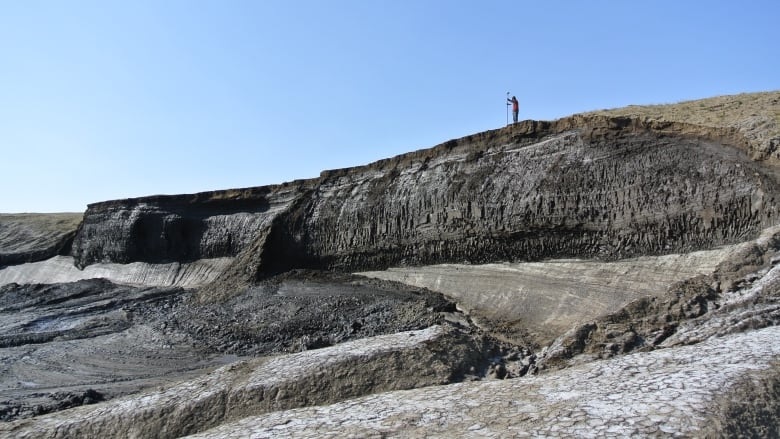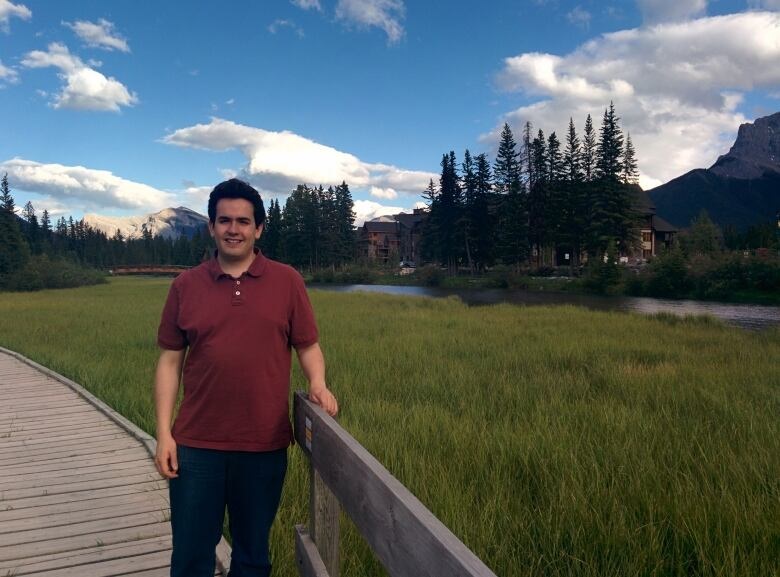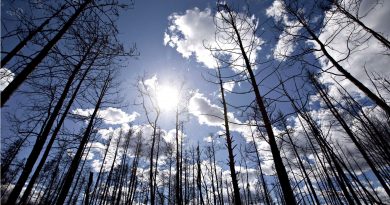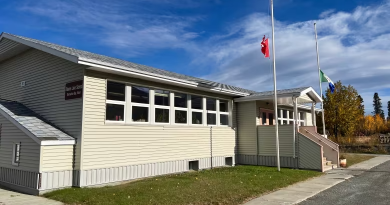Canadian Arctic could face ‘abrupt’ climate threats due to permafrost thaw, says study

New research says major climate threats to Arctic communities, ecosystems and infrastructure could come much sooner than expected as vast areas of permafrost continue to thaw.
The study, published in Nature Climate Change, says permafrost thaw in the region will likely drive “abrupt” climate change that will happen with “little or no warning.” Most alarming, the authors found the severity of wildfires in the Northwest Territories and Yukon could double from one year to the next and stay at that higher rate.
“Suddenly we start getting fires that are twice as intense as before, so it’s easy to see how that affects the ecosystems,” said Bernardo Teufel, one of the study’s authors and a PhD student at McGill University.
Teufel explained that permafrost acts as a barrier to water movement so as it thaws, water can move deeper into the soil leaving the surface dry. This means more combustible material is available, a key ingredient in wildfires, as well as greater flooding risks during snow melt.
The study also found the North will likely experience abrupt increases in heavy rainfall, more lightning, and less humid summers. It says these rapid changes could lead to “catastrophic situations” for roads, buildings, pipelines and mining infrastructure that were designed for current climate conditions.

Thawing permafrost already affecting communities
Previous research has also shown large-scale permafrost loss and changes in climate by the end of the 21st century, but Teufel said until now, it was assumed that would happen gradually. In this case, the researchers used five high-resolution climate models to look at probable changes in soil moisture, temperature, humidity, precipitation and wildfires from 1970 to 2100.
Teufel said some communities are already beginning to notice changes and others will see them within the next few decades.
“One of the main takeaways is just to … not keep this idea that climate change is going to be slow or that climate change is not a problem until … the end of the century,” he said.
The study notes, however, these impacts could be slowed by limiting global warming which leads to permafrost thaw.
The researchers are continuing their work with climate simulations to better understand the effects of climate change on permafrost and Arctic infrastructure.
Related stories from around the North:
Canada: How climate change is thawing the ‘glue that holds the northern landscape together’ in Arctic Canada, CBC News
Greenland: Greenland ice holds Cold War peril, Deutsche Welle’s Ice-Blog
Norway: Thawing permafrost melts ground under homes and around Global Seed Vault in Svalbard, The Independent Barents Observer
United States: New map shows what Bering land bridge looked like 18,000 years ago, CBC News



